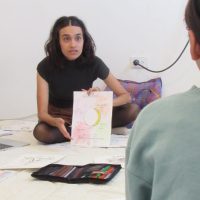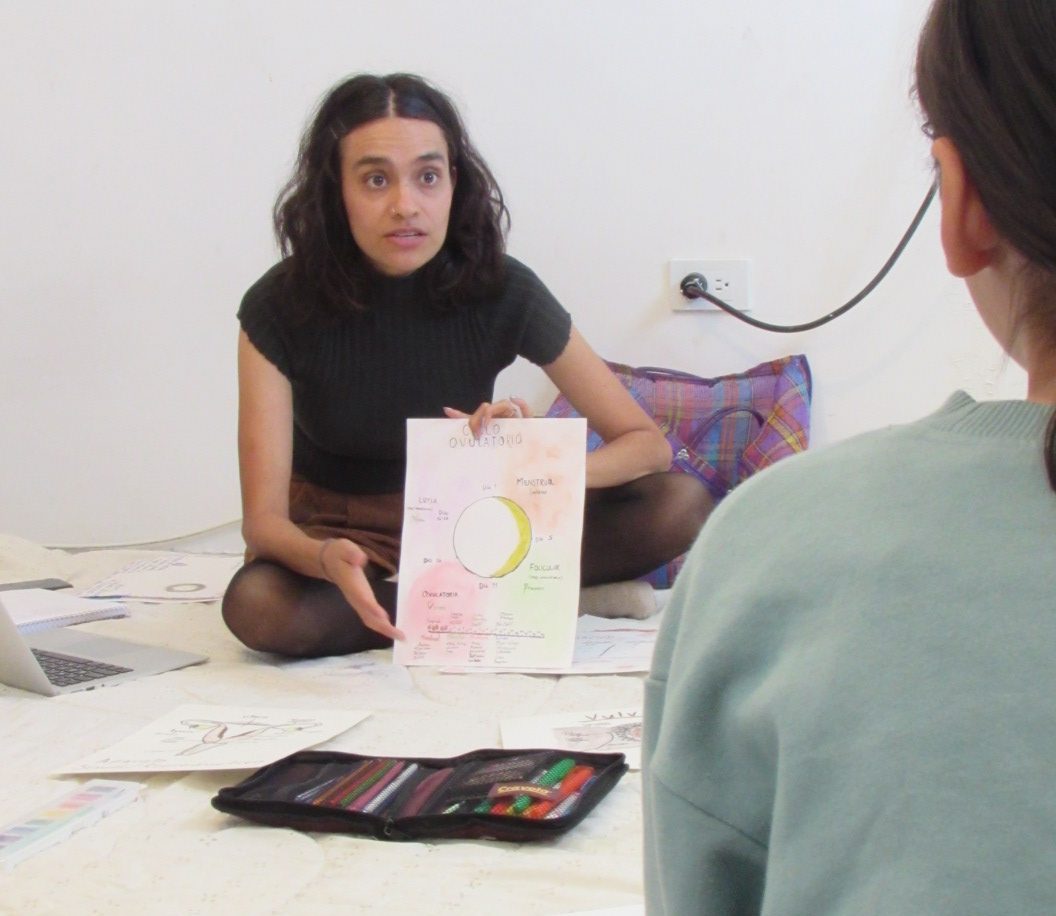“The perfect one is pink. Yours should look like that.”
“It comes every 28 days. 28. Yes, 28.”
“Cramps are a part of life. Deal with it.”
“Look at the bright side. Cramps will stop when you’re pregnant.”
Abby shakes her head, remembering the falsehoods she was told when she was on the cusp of womanhood. Years later, things haven’t changed much in Mexico. Because there is still humiliation around discussing menstrual health, girls and teens are socialized to hide menstruation. They shove pads or tampons up long shirt sleeves before hurrying to the bathroom before anyone can see. Young girls are dismissed when they complain about excessive cramps or heavy bleeding, so they don’t receive the care they need.
In Mexico, menstrual management items, such as towels, tampons, panty liners, compresses, or period cups, are not considered essential products, so they are not included in the basic basket, the set of products and services deemed necessary for a family’s subsistence and well-being. Because feminine hygiene products are not part of the basic basket, women have to pay a 16% tax on these items whereas basic basket items are taxed between zero and four percent. For some women living in vulnerable communities, being able to afford these items means cutting back on other necessities.
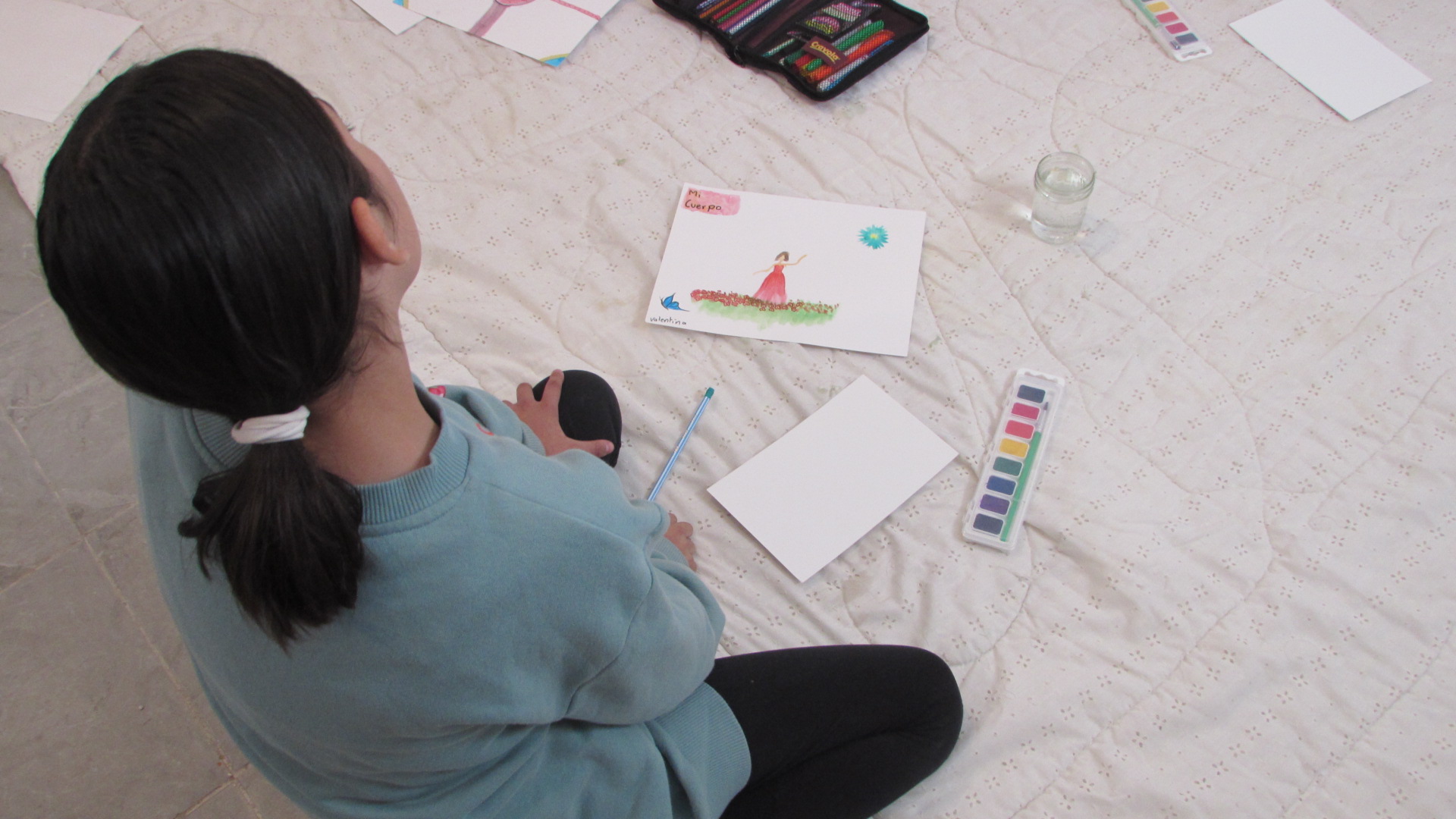
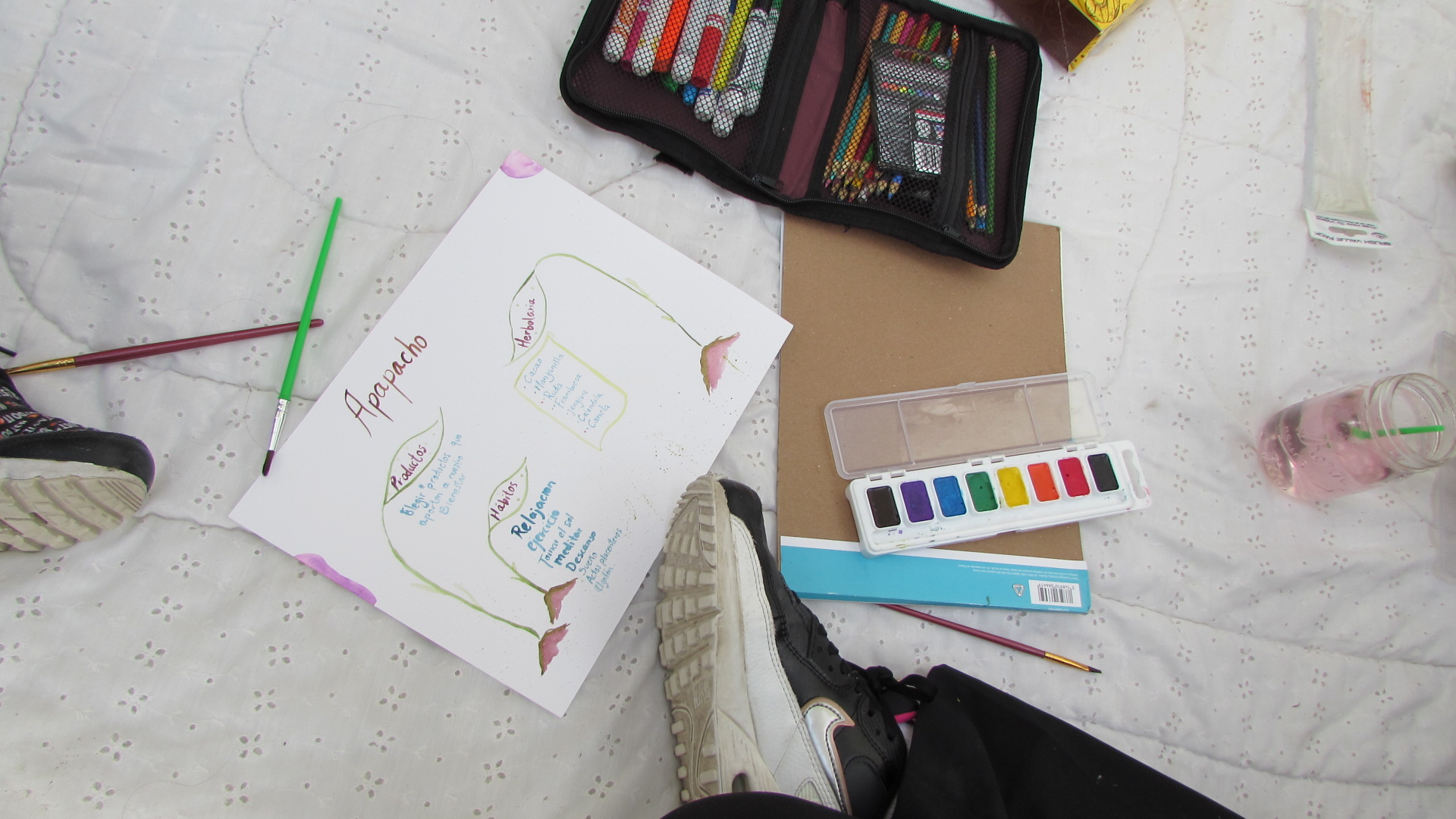
Cultural norms that tell young girls to be ashamed of their periods further damage teenage girls’ self-esteem. Young women struggle enough with all the changes they face during puberty: acne, unwanted hair, and the wrong amount of curves. Without a solid knowledge of biological functions and a tolerant atmosphere to talk about menstrual health, most teen girls are not prepared to take care of menstrual or reproductive health. Yet, most young people in Mexico become sexually active between the ages of 15 to 19.
Abby recognized the physical, economic, and mental toll current menstrual health norms have on teen girls and decided to put young girls first. Drawing on her training in teaching new mothers how to breastfeed, Abby designed a menstrual health positive series of workshops combining practical biological and health information with art therapy to destigmatize menstruation for girls in a vulnerable community in Juarez we support. Abby is part of our peacebuilding community who helped make our Children’s Day celebrations possible.
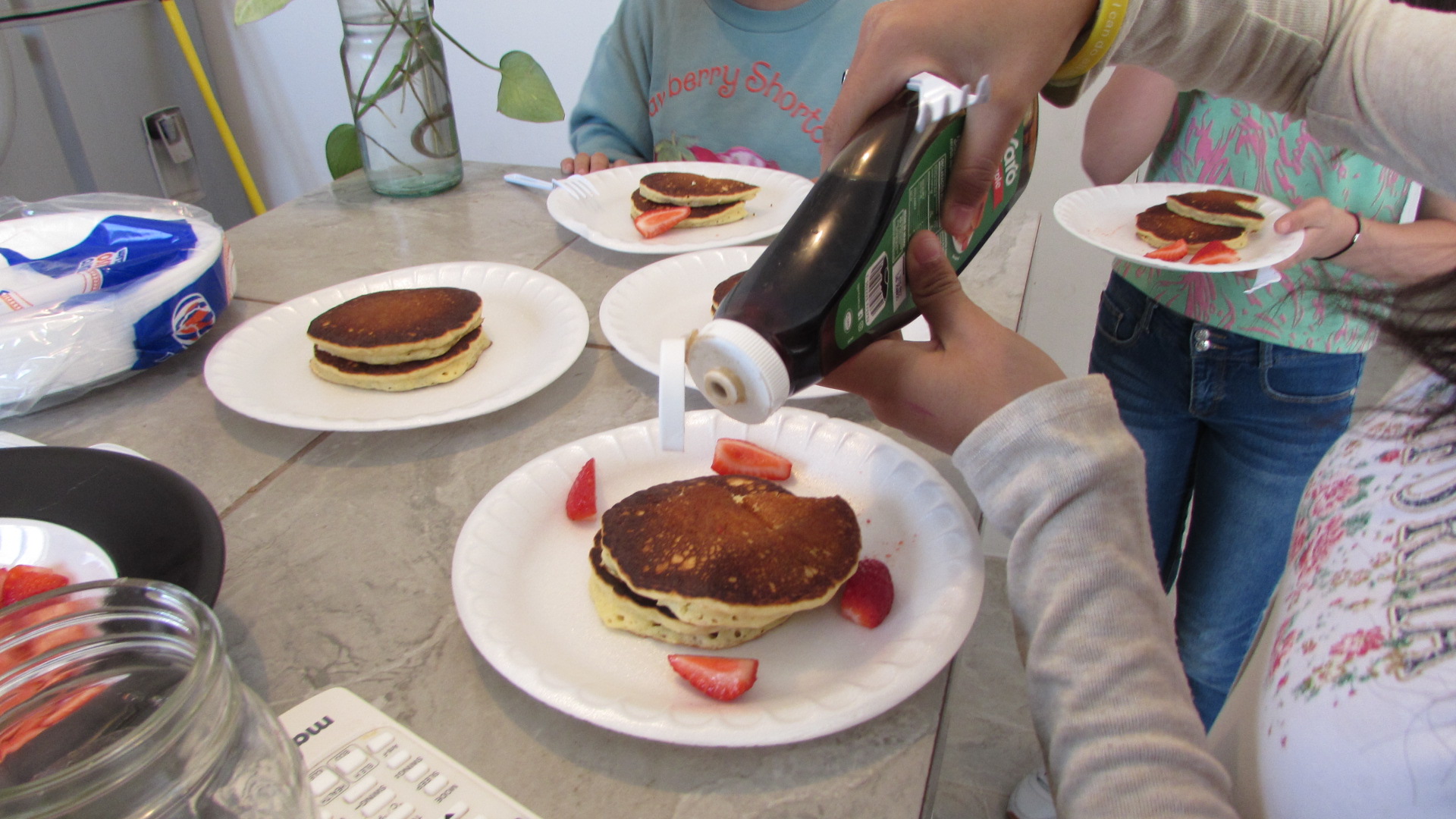
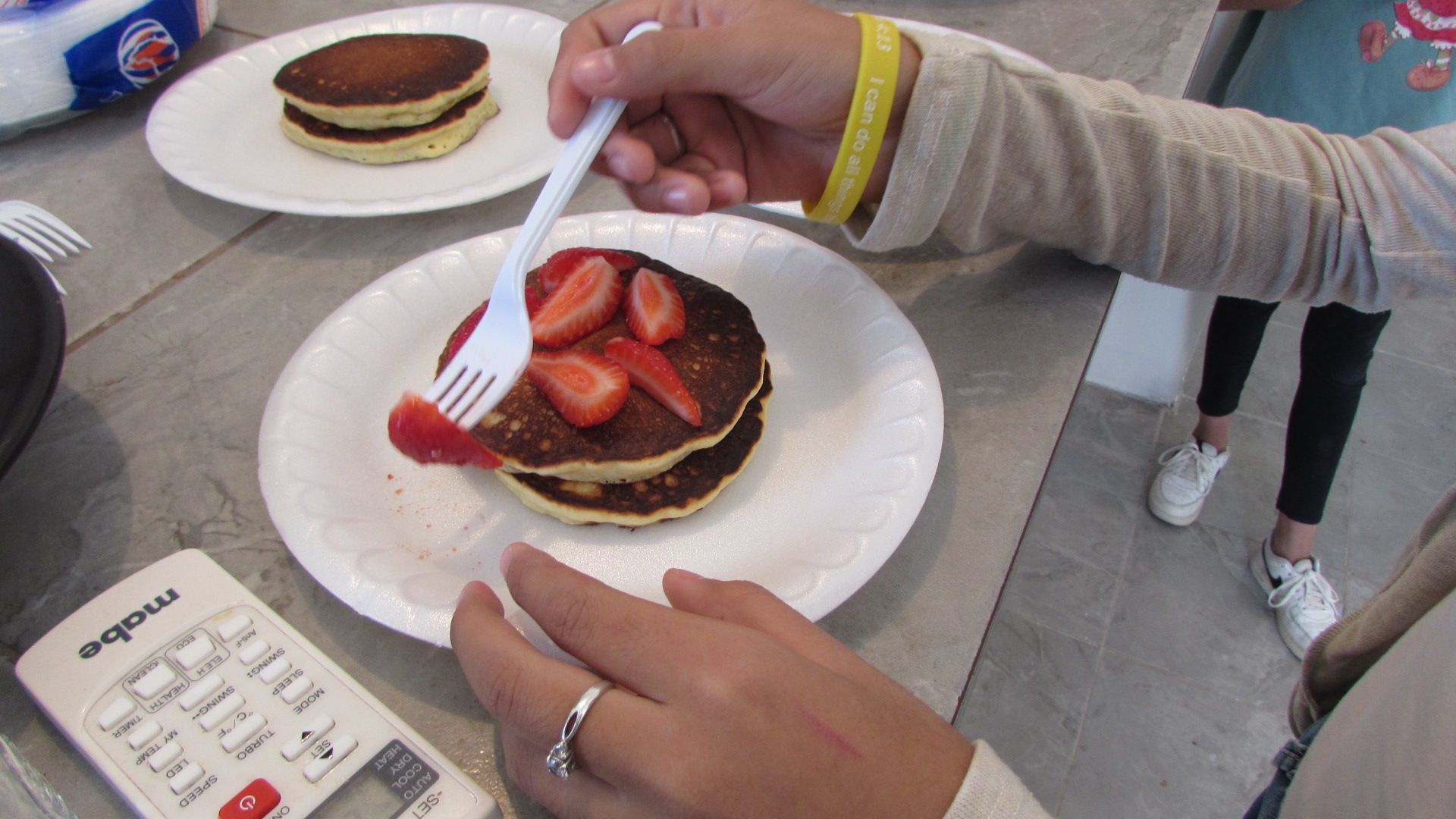
After getting parental permission, Abby opened her home to ten teen girls for three workshop sessions. During the three two-hour sessions, Abby debunks myths around menstrual and reproductive health and replaces them with science-based information. She destigmatizes menstruation through art therapy exercises, discusses the pros and cons of different types of feminine hygiene products, and explains how to use them. Most importantly, she empowers young women to make healthy choices for their bodies. These topics are so relevant that several moms asked to attend, and we are planning future sessions for them.
The girls sit down to welcome breakfast of homemade pancakes garnished with fresh strawberries. During the workshops, they are encouraged to draw and color their emotional responses to the information Abby gives them instead of taking notes. The discussions are always lively, especially when Abby demonstrates how to use a menstrual cup or shares the different products she uses according to her daily routine. At the end of the three sessions, the attendees receive menstrual management kits containing reusable feminine pads, intimate wet wipes, tea bags to help alleviate the pain from cramps, and a cute little bag to carry the items. There is also a raffle with a chance for two workshop participants to win a menstrual cup.
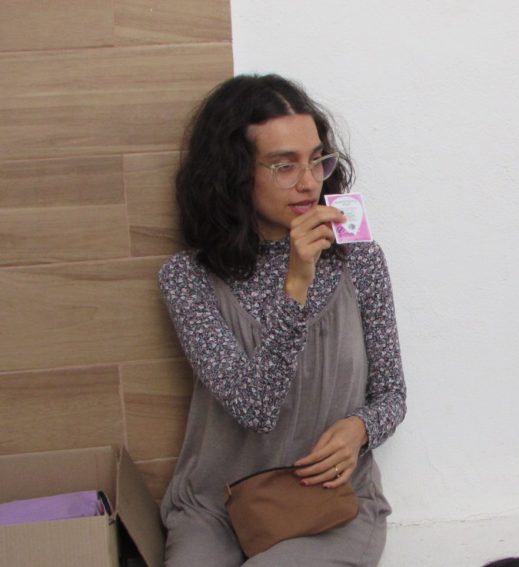
These days, talking about mental health is more acceptable than talking about menstrual health in Mexico. But thanks to our community of peacebuilders–Abby, our program officers, our donors, and the people we serve–we put young girls first, replace shame with knowledge, and empower teen girls to make healthy choices for their bodies. Join us as we tear down stigmatization and build up self-esteem for teens and women in Juarez.
This Giving Tuesday, Put People First

